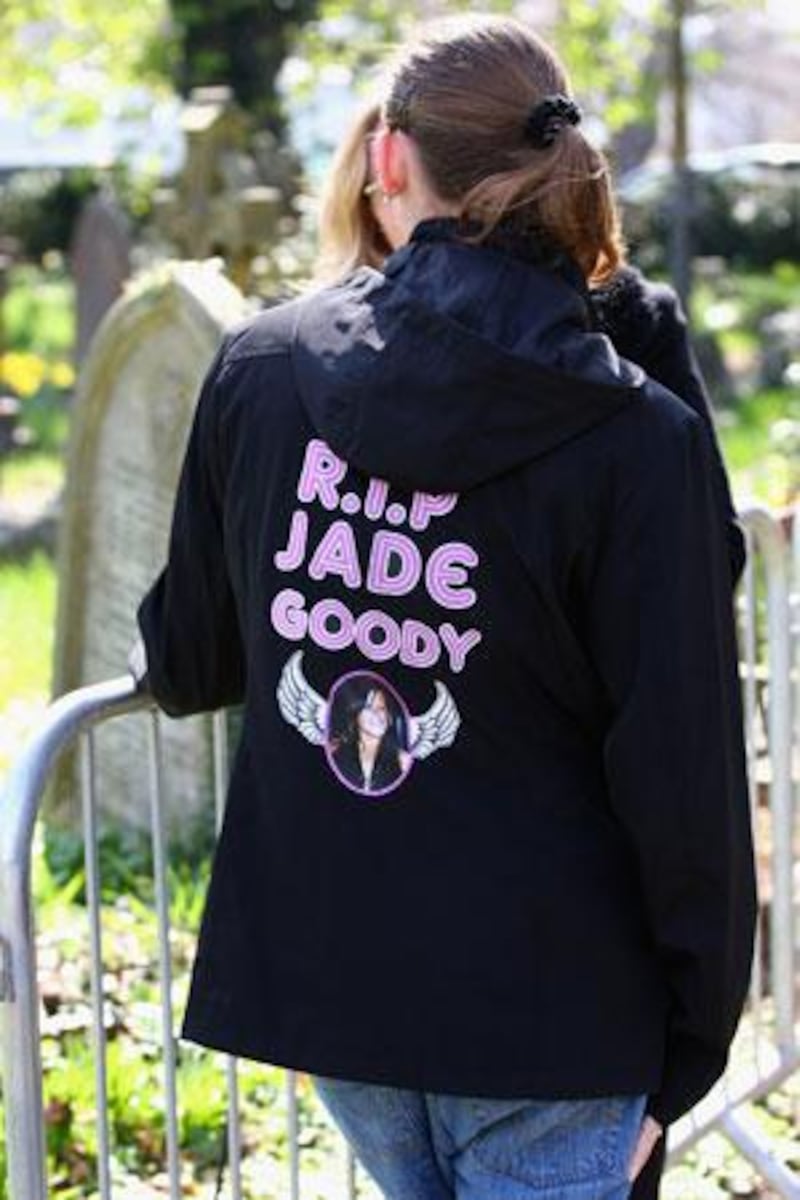One year ago today, the British reality television star Jade Goody died from cervical cancer, leaving behind her husband and two sons. She was 27: young to die from a disease that has 85 per cent survival rates for sufferers under the age of 40 in developed countries. Goody was diagnosed in August 2008, two years after Gardasil, the first developed "cervical cancer" vaccine, was licensed in the US, Europe and Australia. The vaccine protects against four strains of HPV (human papillomavirus, a family of more than 200 viruses, certain types of which are associated with various forms of cancer).
HPV is sexually transmitted and causes almost all cases of cervical cancer. The vaccines operate on the basis that if the spread of HPV can be stemmed, so too can the rate of cervical cancer. There are, in fact, two kinds of vaccine, Gardasil and Cervarix, available in the UAE, where cervical cancer is the second most common type of the disease affecting women. (Breast cancer is the most common.) But they are expensive: UAE residents usually have to pay up to Dh2,000 for the treatment, which involves three separate injections over a six-month period.
In 2008, Abu Dhabi launched a subsidised immunisation programme for its female residents, and a special task force has been set up by the National Immunisation Committee to investigate every aspect of a national vaccination programme. Dr Mahmoud Fikri, the chairman of the committee and a senior member of the Ministry of Health, said last week that its findings would be presented at the next committee meeting in a "maximum" of two weeks' time.
"They are investigating everything - all the literature, all the studies, how many doses, where it's licensed, which countries are using it; everything," said Fikri. Gardasil, manufactured by Merck, is now the German pharmaceutical company's top-selling vaccine, while Cervarix is made by the British group GlaxoSmithKline. Gardasil protects against four strains of HPV - 6, 11, 16 and 18 - while Cervarix, the vaccine chosen by the British government for its statewide NHS programme, just protects against types 16 and 18, which are the most virulent cancer-causing strains. They are usually administered to girls aged between nine and 26.
The vaccines have been welcomed by much of the medical profession, although they are not without controversy. Since 2006, Merck in particular has heavily promoted Gardasil, and has been criticised for paying doctors up to $4,500 (Dh16,500) to lecture on the drug's benefits, a marketing effort that has sent parents across the world marching their young daughters to the doctor's for a trio of shots.
Both Gardasil and Cervarix are available in the American Hospital in Dubai, both priced at around Dh660 per shot. According to Dr AC Rajalakshmi, who works in gynaecology and obstetrics at the American Hospital, women of all ages come for vaccination, although there is a preponderance of girls aged between 12 and 13 chaperoned by anxious mothers. The trouble, she says, is that there is a general level of ignorance about the vaccines, something that would be addressed by the introduction of a national programme. "If there's a national programme then nobody questions it."
That sentiment is echoed by another Dubai-based doctor, Amir Nasseri, the medical director of Healthcare City's N9NE Medical Institute. "It is a difficult topic in the UAE," he says. "Patients and public need more education and information." But both Merck and GlaxoSmithKline have faced the accusation that, as their drugs are relatively new, there is little data available on the long-term effects. Merck admits that "the duration of protection has not been established", with efficacy demonstrated through five years so far.
There are also side effects, most commonly headaches, muscle pain and tiredness, although - as so often happens with mass programmes of vaccination - there have been more serious accusations: in September, a media storm erupted in Britain when a 14-year-old girl died within hours of receiving her jab, though a malignant tumour was then found in her chest. In the US, Leslie Botha is one of six women calling themselves "Little Women With Big Voices" who have spent the past three years researching the vaccines and talking to parents, some of whom say their daughters died as a consequence of being vaccinated.
But health experts point out that the chances of developing serious problems from the vaccines have been assessed at one in a million. The drug companies, meanwhile, admit to lesser side effects, but say that the deaths were not caused by the vaccine and that the numbers are consistent with those expected within normal adolescent and adult populations. The doctors seem to agree. "It is safe, effective and beneficial," says Nasseri. Rajalakshmi agrees, but adds that it is important for vaccinated women to remember that they still need to come in for regular Pap smear tests, because the vaccines don't protect against all strains of HPV.
Earlier this month, Dutch researchers reported that home-testing kits for HPV, if made available, could double the number of diagnoses, so whether or not you are in favour of the vaccine, there are at least a growing number of options.






